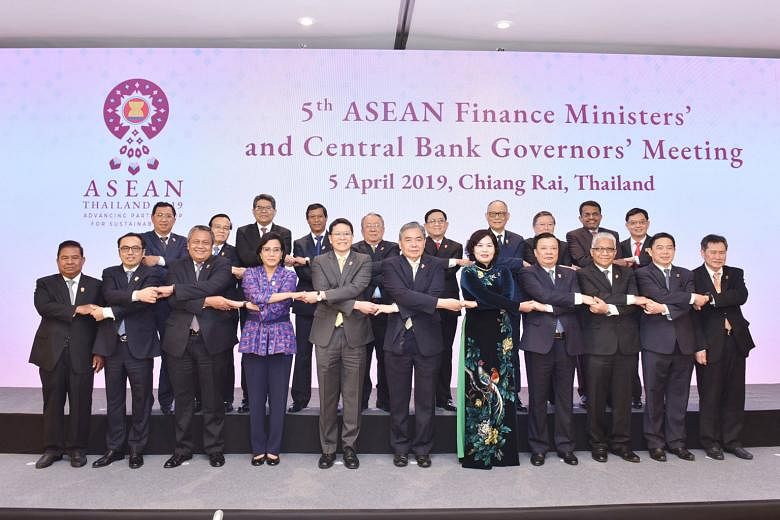The Asean region has a promising future but it still must undertake structural reforms to deepen integration and connectivity to meet new challenges, said Singapore's Finance Minister Heng Swee Keat.
He said in the Thai city of Chiang Rai yesterday: "Many areas of Asean's integration require multi-year collaboration, whether it is in infrastructure financing, payment linkages, green sustainable financing or in Customs and taxation matters."
The region's economy grew 5.1 per cent last year, driven by strong domestic demand and investments.
Mr Heng was speaking after the Asean Finance Ministers' and Central Bank Governors' Meeting drew to a close.
A joint statement by finance ministers and central bank governors also underlined the region's commitment to economic growth and financial stability amid uncertainty caused by trade tensions and policy adjustments by advanced economies.
"We are confident that the significant infrastructure developments implemented across the region in several Asean member states will boost investment, consumption and spur economic growth," it noted.
Asean's efforts to lift financial integration and liberalisation included the signing of a protocol yesterday. This aims to further open market access in the financial service sector and also allow qualified Asean banks to benefit from greater market access and operational flexibility.
The use of local currencies to enhance trade and direct investment flows in the region was also given a boost with the signing of letters of intent between the Philippine central bank and the central banks of Indonesia, Malaysia and Thailand to initiate discussions on establishing a currency settlement framework.
Payment connectivity - another pillar aimed at bolstering regional cooperation - was given a leg-up as well.
The statement pointed to the development of a regional framework to integrate real-time retail payments that can lower the cost of services and encourage local currency use in cross-border transactions.
Sustainable finance that improves economic standards while promoting ecological systems and social well-being was also highlighted as an important tenet.
Mr Heng noted that Asean has to meet challenges from technological advances such as Industry 4.0, also known as the fourth industrial revolution.
"But there are many new opportunities that are opened up with this that will allow our banks and financial institutions to serve the currently underserved better and to promote more inclusive growth and development," he said.
The next meeting will be held in Vietnam next year.


